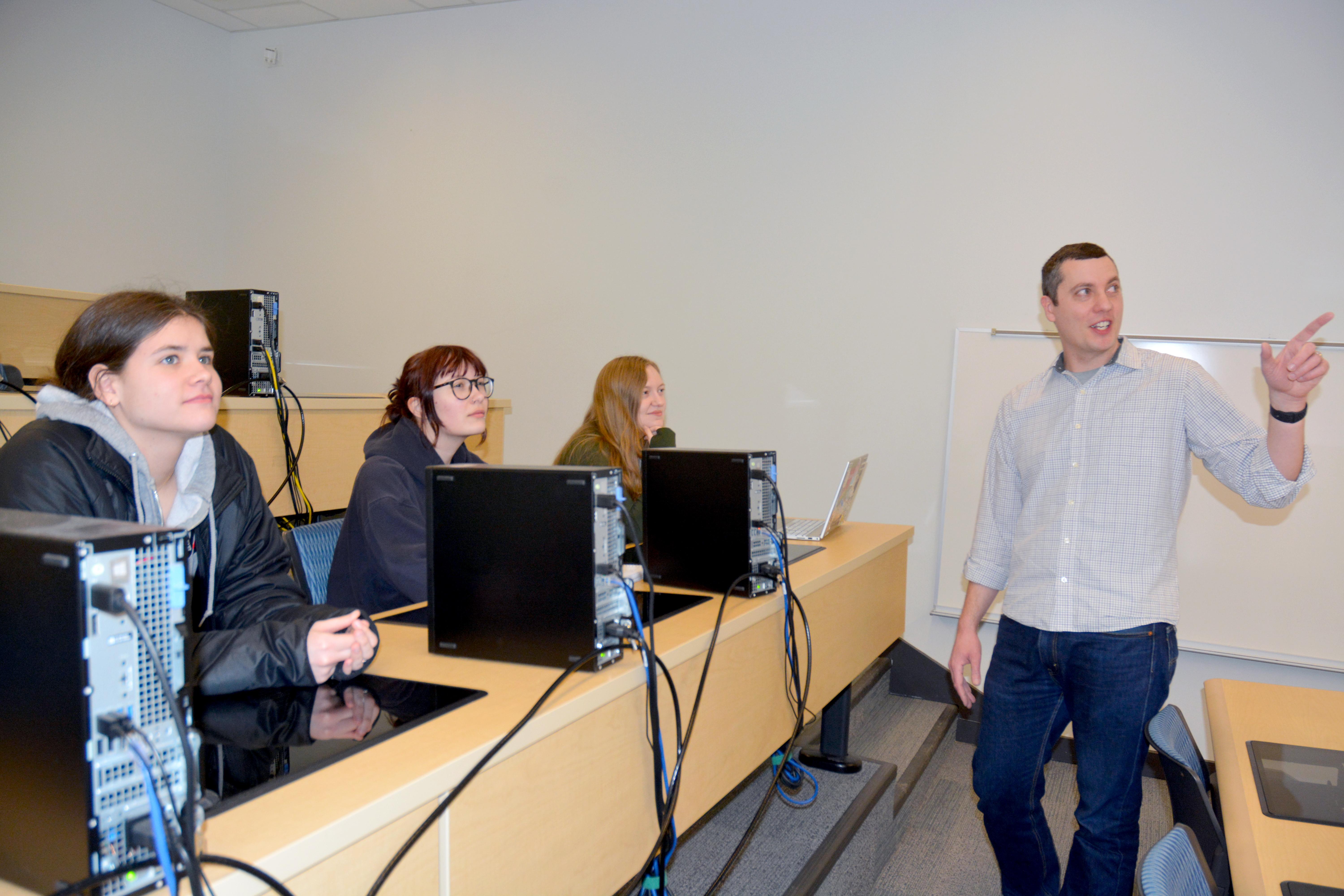Mark Baker, an associate professor of mathematics and the coordinator of the university's new statistics major, speaks in an "Applied Regression Analysis" class in the Shineman Center. From left are Isabelle Dauge, a psychology major with a statistics minor; Mary Tomascak, a business administration major with minors in statistics and mathematics; and Kerrie Little, a double major in statistics and computer science, with a minor in actuarial science.
SUNY Oswego recently introduced a new statistics major that can multiply the number of data-driven career options for interested students.
The bachelor of science in statistics became an official major at SUNY Oswego in fall 2024, making Oswego one of three SUNY schools offering this degree. While putting the major together, the Mathematics Department developed and offered many of its core courses.
The statistics degree is great for anyone interested in a data-driven career, said Mark Baker, an associate professor of mathematics and the coordinator of the new major.
“This degree focuses on preparing students to collect, summarize, analyze and interpret data, in addition to exploring how to construct and evaluate data-driven mathematical models,” Baker noted. “One of the focuses of this program is to help nurture and reinforce students’ problem-solving and decision-making skills which are highly sought-after skills in any professional setting.”
Fields students can enter with this degree include business, economics, health care, medicine, technology, manufacturing, environmental science, social science, finance, marketing and sports.
Increasing odds of success
Kerrie Little is one of the university's first statistic majors, while also double majoring in computer science. The two majors complement each other.
“There are several unique upper-level statistics electives that have taught me concepts and tools that would be difficult to find elsewhere,” Little said. “When applying for internships for the summer, I was able to perfectly hit all of the preferred skills (beyond the required) to make me a desirable applicant.”
It also complements Little’s other major of computer science well.
“I find that especially learning to code in syntax-based statistical languages/software, in the courses offered here, (the major) has put me far ahead and truly prepared me for my career after graduating,” Little said.
Some helpful courses include “Data Mining and Predictive Analytics” (MAT 378), “Introduction to Forecasting” (MAT 351), “Applied Regression Analysis” (MAT 357) and “Statistics In The Sciences” (MAT 318).
“I particularly like medicine and plan to use my skills for research related to health,” Little said. “We also have a new minor in actuarial studies which is very appealing to students who want to pursue a career as an actuary.” Actuaries are professionals who analyze such areas as financial costs of risk and uncertainty for businesses and clients.
“In an age of information that is driven by data, it is increasingly important to understand how to appropriately analyze data and accurately interpret the results,” Baker said. “With the continued growth in the amount of data that is being collected across nearly all sectors of industry, there is an increased need for individuals with the knowledge and skills to utilize that data effectively.”
-- Written by Gianna Cowell of the Class of 2026




